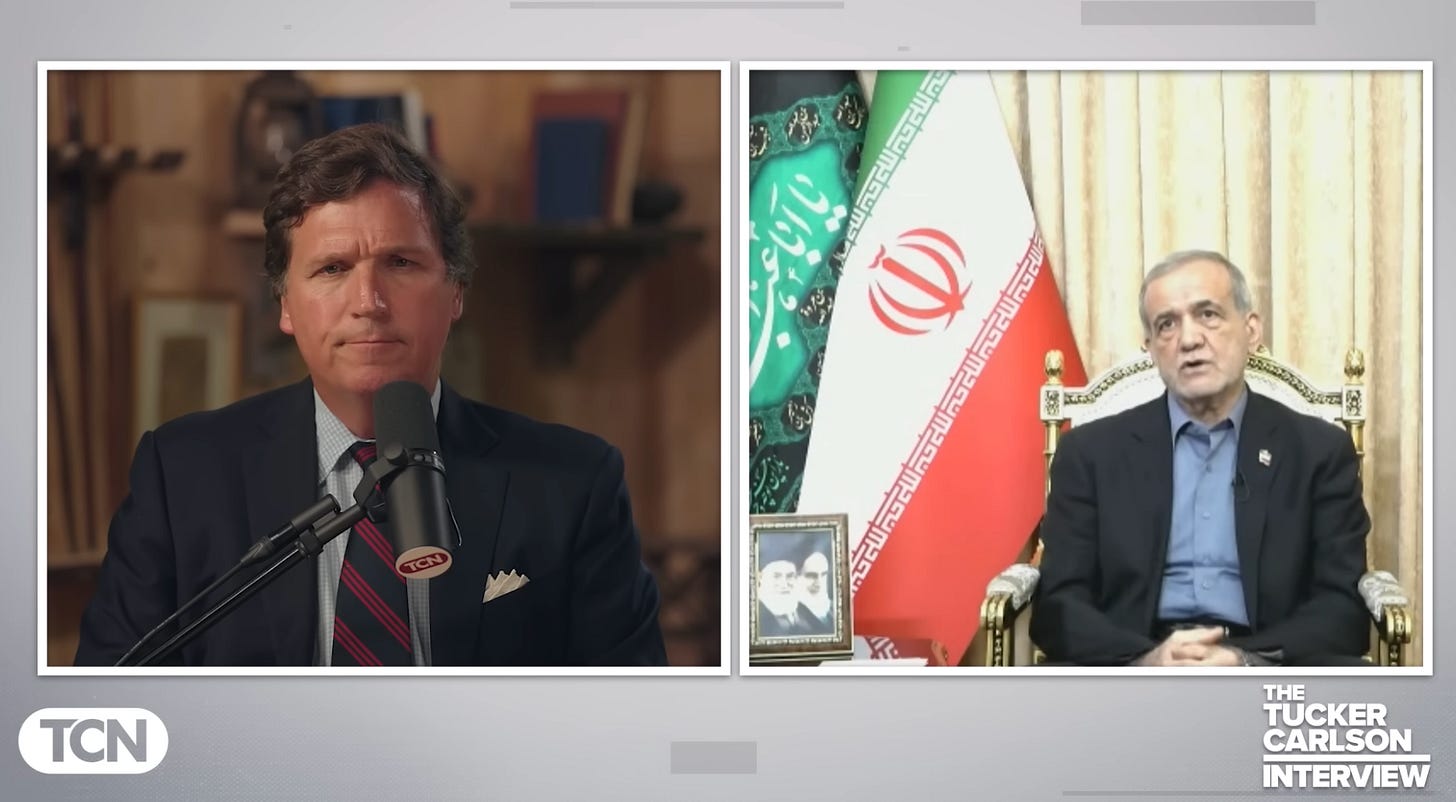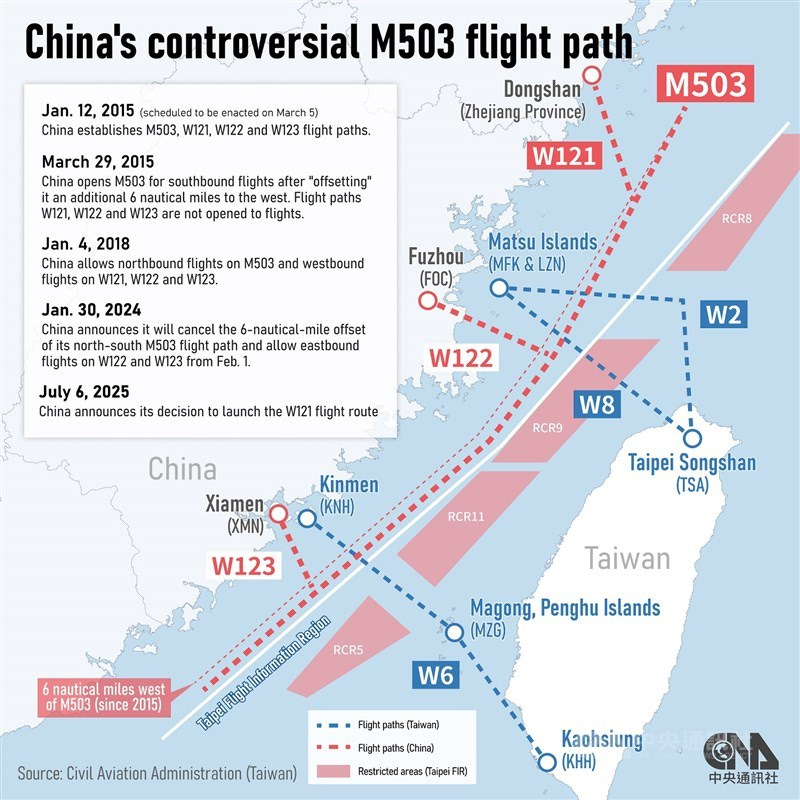Weekly Significant Activity Report - July 12, 2025
China ups pressure on Taiwan during Han Kuang 41, Putin and Xi miss the BRICS summit in Rio, Russian officials continue to die mysteriously, Iranian leaders mount a PR offensive
This week's analysis highlights some of the most significant news concerning America's adversaries between July 5, 2025 - July 12, 2025.
Summary:
Taiwan comes under new pressure by China as the island conducts its largest-ever military exercise.
The 2025 BRICS+ summit in Rio is marked by the absence of Putin and Xi.
Russian Transport Ministry officials die mysteriously as economic pressures and Ukraine attacks escalate.
Iranian leaders mount a public relations offensive.
The US cracks down on OPFOR cybercriminals with new sanctions and arrests.
1. CHINA ESCALATES PRESSURE ON TAIWAN DURING LARGEST MILITARY EXERCISE IN ISLAND'S HISTORY
Taiwan Holds its Annual Han Kuang Exercise
Taiwan began its annual Han Kuang military exercise on July 8. The drills mimic a response to a Chinese invasion of the island. This year’s Han Kuang, the exercise’s 41st iteration, is the longest ever at 10 days long.
China Alters Key Flight Route Over Taiwan Strait
On July 6, China announced the opening of a new extension of the official M503 flight route that runs parallel to the Taiwan Strait Median Line. The change, which was not coordinated with Taiwan, came just days before the start of Taiwan’s Han Kuang 41 exercise. The new extension will further congest airspace near Taiwan’s Matsu islands.
China Blacklists Taiwanese Companies With Defense Industry Ties
On July 9, the first day of Han Kuang 41, China’s Ministry of Commerce imposed export controls on eight Taiwanese companies which contract with Taiwan’s defense industry. The export controls prevent Chinese exporters from providing Taiwanese companies with technology which has dual civilian and military uses.
Takeaways:
The opening of the new extension of the M503 flight route represents another small, seemingly innocent, step by China to envelop Taiwan using means other than military force. The M503 flight route, first established in 2015, runs in close proximity to the unofficial coordination line between China and Taiwan—the Taiwan Strait Median Line. China has repeatedly changed the flight route to allow more extensions to the north and south of Taiwan, and allow flights to travel toward rather than away from Taiwanese air space. Each adjustment encroaches further on Taiwan’s airspace and makes the task of separating civilian aircraft from military threats more difficult.
China has long maintained that its trade with Russia in dual-use technology poses no threat to international security, and does not make it a partner to Russia’s war in Ukraine. The export controls on Taiwanese defense contractors undercut these assertions with an admission that China believes dual-use exports have ready military applications.
2. BRICS HOLDS ANNUAL SUMMIT WITHOUT TOP RUSSIAN AND CHINESE LEADERS
Putin and Xi Skip Summit
This week, the BRICS+ Group held its annual summit in Rio de Janeiro. While normally attended by leaders from all the core BRICS countries, Brazil, Russia, India, China, South Africa, this year’s summit was missed by Vladimir Putin and Xi Jinping.
Summit Statement Condemns Military Actions by the US, Israel, and Ukraine
The Joint Declaration of the 17th BRICS Summit signed by all participants on July 6 condemned the June bombings of Iran’s nuclear program by the US and Israel. Surprisingly the joint statement also condemned alleged Ukrainian military actions against Russian railways.
The statement, signed two days after the Russian military launched the largest air assault of the war on Ukrainian cities, made no mention of Russia’s escalating bombing campaign against Ukrainian civilian infrastructure.
Takeaways:
The demands for change to the international order that the BRICS+ Group represents resonate in many countries dissatisfied with the West’s continued outsize influence in global affairs. The idea of the BRICS+ appeals to countries from the so called “Global South” due to the members’ collective size (45% of global population), growing economic stature (35% of global GDP by purchasing power parity), and inherently non-Western orientation.
BRICS+ as a brand is powerful. As an institution, however, BRICS+ is riddled with contradictions and diverging long-term interests between core group members. Members such as China, Russia and India share very different views of what a post-Western, multipolar world order should look like. The group’s coherence and ability to organize effectively will diminish as it expands to include new members with their own divergent interests and rivalries such as Iran and Saudi Arabia.
The inclusion of the statement condemning Ukrainian attacks, without naming Ukraine directly, is a largely pointless gesture but one that points to growing pressures to take ideological stands as a group that align with core member interests. These pressures for ideological conformity will add to the group’s incoherence and threaten its ability to act as a meaningful decision making body.
Putin and Xi’s absence from the BRICS+ underscored some of the unspoken contradictions at the heart of the group. Putin’s absence, due to an outstanding warrant issued by the International Criminal Court (ICC), highlighted the enduring appeal of Western institutions and the high aspirations of the “rules-based” international order. The reason Xi missed the summit for the first time is not as clear. Nevertheless, his willingness to skip the opportunity to rally global public opinion against US tariffs, and cede the spotlight to rival Indian Prime Minister Narendra Modi, suggests that China does not view participation in BRICS+ functions as a top national priority.
3. TWO RUSSIAN TRANSPORT OFFICIALS DIE MYSTERIOUSLY THIS WEEK
Roman Starovoit, Russia’s Minister of Transport died from a “self-inflicted” gunshot wound on July 7, hours after he was fired by Russian President Vladimir Putin. The death occurred at nearly the same time that deputy head of the Russian Federal Road Agency, Andrey Korneichuk, died of a heart attack at the Ministry of Transport’s headquarters in Moscow.
Takeaways:
The deaths of the Transport Ministry officials occurred three days after a top Russian oil executive, Andrei Badalov, the vice president of Transneft, met his end falling out of his Moscow apartment window on July 4.
The unusual deaths are the latest in a long-running series of mysterious fatalities that have claimed top Russian officials and business leaders since Putin became President in 2000. Many if not most of these deaths are believed to be the work of state authorities. Russian independent media outlet Meduza has documented at least 13 unusual deaths of leaders from Russia’s Transport Ministry and oil and gas industry since 2022.
The recent spate of executive mortality comes amid worsening pressure on the Russian economy and increasing Ukrainian attacks that have destroyed Russian oil and gas pipelines and dozens of refineries as well as disrupted air and rail traffic. The deaths suggest the Kremlin’s dissatisfaction with efforts made by officials to protect Russia’s critical infrastructure.
4. IRAN’S PRESIDENT AND SUPREME LEADER MAKE SURPRISE PUBLIC APPEARANCES
Iran’s President Appears on the Tucker Carlson Show
On July 8, Iranian President Masoud Pezeshkian made a surprise guest appearance on the Tucker Carlson Podcast. Pezeshkian, who spoke with Carlson for nearly half an hour, announced Iran’s willingness to negotiate with the US but its determination to continue its civilian nuclear program. Pezeshkian also implied that he was the target of a failed Israeli assassination attempt.

Ayatollah Khamenei Appears at Religious Ceremony
This week Ayatollah Khamenei reappeared in public for the first time since the war with Israel and US, attending a ceremony honoring revered Shia Imam Hussein ibn Ali on July 5.
Takeaways:
Iranian officials are working to reshape public perception after suffering major strategic setbacks in the 12-day war with the U.S. and Israel.
By humanizing Iranian leadership and announcing Iran’s willingness to continue negotiations directly with Tucker Carlson’s audience of American conservatives, Pezeshkian is attempting to split Republican support for President Trump’s current maximum pressure campaign against Iran. Pezeshkian aims to portray Israel, rather than Iran as the primary obstacle to peace in the region. It is a message that may appeal to a core part of Tucker Carlson’s audience. Tucker Carlson has himself repeatedly parroted antisemitic tropes like the “Great Replacement Theory” and has regularly hosted guests who allege a vast Israeli and Jewish conspiracy control the US government.
Ayatollah Khamenei had previously not appeared in public in nearly four weeks. His reappearance helps tamp down rumors about government infighting and the aging leader’s health and restores confidence in the regime’s stability.
5. US TARGETS CYBERCRIMINALS FROM CHINA, RUSSIA, AND NORTH KOREA
This week the US government announced multiple economic and legal actions against cyber criminals from the OPFOR:
Sanctions:
July 8 - The US Department of State and Treasury announced sanctions targeting Song Kum Hyok of the North Korean hacking group Andariel. Song was reportedly involved in an attempted hack of the US Treasury Department as well as organizing fraudulent remote work schemes with the assistance of a Russian group organized by Gayk Asatryan, who was also sanctioned.
Arrests:
July 8 - The US Department of Justice announced the arrest of Xu Zewei and Zhang Yu, a pair of Chinese hackers who exploited Microsoft Exchange vulnerabilities to steal a wide array of government and university research on COVID-19. The pair operated under the direction of the PRC’s Ministry of State Security’s (MSS) and Shanghai State Security Bureau (SSSB).
July 9 - France announced that it would jail Russian basketball player Daniil Kasatkin at the request of the US government. US law enforcement accuses Kasatkin of helping to negotiate ransoms for hacker gangs responsible for ransomware attacks on over 900 companies and two US federal agencies.
Takeaways:
The sanctions and arrests come a week after the US and UK sanctioned the Aeza Group, a bulletproof hosting (BPH) service provider based in Russia that has helped enable hacking networks and black market exchanges.
The spate of actions are the latest in an intensifying effort by the US and its allies and partners to work together and crack down on escalating cyber crime. According to FBI data, there were a total of 859,532 reports of suspected internet crime in the US in 2024. The total losses from cyber crime affecting the US exceeded $16 billion, up 33% from 2023. These losses are expected to grow as hacking tools and social engineering schemes become more sophisticated with the use of artificial intelligence (AI).
Numerous reports suggest that China, Russia, Iran and North Korea, already the “big four” countries for cyber criminals, have been pioneering the use of AI for the next generation of cyber threats.
6. RUSSIAN DRONES HAMMER UKRAINE
This week Russia expanded its record-breaking air assaults into cities in western Ukraine. To read more about Russia’s intensifying campaign of drone-led strikes see this week’s Situation Report: Russia's 2025 Shahed Drone Offensive featuring analysis by Elena Davlikanova, Senior Fellow at the Center for European Policy Analysis in Washington D.C. and the Sahiadachnyi Security Center in Kyiv.







I truly dig this. Well done lads.